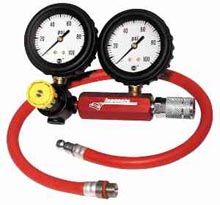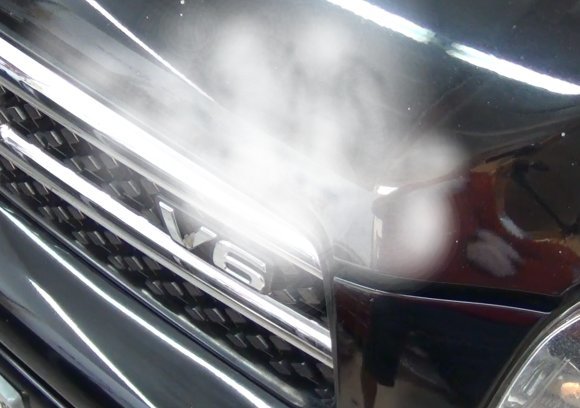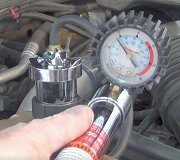Hello jsieber,
The most likely cause is the head gasket.
Here is the different between the intake the head gasket.
The intake Manifold gasket is the gasket that seals the intake manifold to the cylinder heads, if leaks, it may allow coolant to enter the intake port, crankcase or dribble down the outside of the engine.
your engine is not wet around. so it is not the intake gasket.
it is probably your head gasket
you did a good jo9b with the compression test.
leaking cylinder #2 with wet spark plug.that is in the head.
For the cracked Head or Block,
this dilutes the oil on the cylinder walls and can damage the piston and rings. If the coolant contains silicates (conventional green antifreeze), it can also foul the oxygen sensor and catalytic converter. If enough coolant leaks into the cylinder (as when the engine is sitting overnight), it may even hydro-lock the engine and prevent it from cranking when you try to start it.
A coolant leak into the crankcase is also bad news because it can damage the bearings. Coolant leaking into the crankcase will make the oil level on the dipstick appear to be higher than normal. The oil may also appear frothy, muddy or discolored because of the coolant contamination
Now let's come back to our situation.
The problem is the head gasket one.
it can be verified with performing cylinder leakage test
it is more accurate than compression test.

A leak down test requires the removal of all the spark plugs. The crankshaft is then turned so that each piston is at top dead center (both valves closed) when each cylinder is tested. Most people start with cylinder number one and follow the engine's firing order.
A threaded coupling attached to a leakage gauge is screwed into a spark plug hole. Compressed air (80 to 90 psi) is then fed into the cylinder.
An engine is great condition should generally show only 5 to 10% leakage. An engine that's still in pretty good condition may show up to 20% leakage. But more than 30% leakage indicates trouble.
if there is leak,it can be pinpointed by just listening:
-Oil filler:leaking rings or piston
-Air cleaner:leaking intake valve
-Exhaust: leaking exhaust valve
-Bubbles in the radiator:blown head gasket
Hope this information help.
SPONSORED LINKS
Friday, October 16th, 2020 AT 11:47 AM




